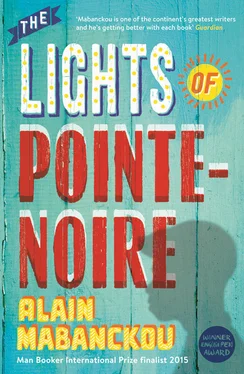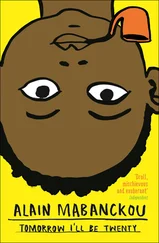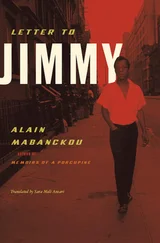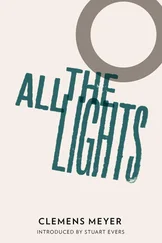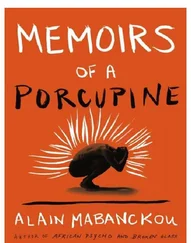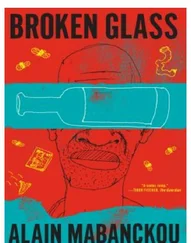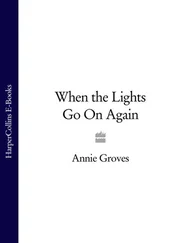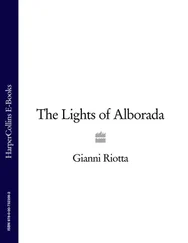‘Don’t disturb me, I’m reading!’
She looked like Reading Woman by Jean-Honoré Fragonard. How had she managed to hide from me for so long that she knew how to read? She concentrated hard, checking out of the corner of her eye that, like my father, she had my attention.
The next time this happened, I went over to her and realised she was holding the newspaper upside down. I pointed this out to her with a mocking smile. Unruffled by what she perceived to be an insult, she looked me up and down, returned the mocking smile and said:
‘Do you really think that I, Pauline Kengué, daughter of Grégoire Moukila and Henriette N’Soko, am so crazy I’d read a paper upside down? I did it deliberately to see your reaction! Don’t you go thinking you and your father are the only ones in this house who know how to read and write!’
On the outside, nothing has changed, apart from the air-conditioners fitted above the windows and the satellite dishes on the roof. Built in the late 1940s, in the centre of town, a short distance from the Côte Sauvage and the railway station, the Victory Palace is one of the oldest hotels in Pointe-Noire. In 1965, the first owner, M. Trouillet, handed over the management to Ginette Broichot, and she bought it from him in 1975. Since it was first erected, the building has watched from a distance as new constructions go up around it, and with slight arrogance preserves the typical structure of that time, concrete, with a huge white façade at the corner of Rue Bouvanzi and Avenue Bolobo.
I don’t dare enter the building, as though I fear my father’s ghost might be lurking somewhere, resenting this return to his past, which is also, indirectly, my own. I recall how he used to boast that he was the doyen of this hotel, and the most loyal member of its staff. The proof of this lay in his special treatment by Mme Ginette, who never raised her voice to him, while the rest of the staff lived in fear of the wrath of the French boss. Madame Pauline thought Papa Roger’s monthly salary was twice what it really was, when in fact he was constantly asking for an advance or counting on getting tips from the clients. He had managed to get my maternal uncle, Jean-Pierre Matété, a job as a room boy. In the summer, Marius, one of my ‘half-brothers’, and I worked cleaning rooms and washing dishes. Sometimes, if she went back to France on holiday, Mme Ginette would put him in charge of the hotel. During these periods he stepped into the boss’s shoes and ran the place with an iron fist. If anyone’s uniform wasn’t perfect he would tell them off, and he shouted at the gardener if he was late watering the plants. Papa Roger didn’t mince his words, calling some people ignorant, others bastards, and writing their names down in his notebook so he could report back to Mme Ginette when the time came. The employees secretly longed for the boss to return as soon as possible, since being shouted at by a Negro was worse than being shouted at by a white.
I will never forget the time he fell into a deep gloom, when the stories he brought home from work, and which my mother and I adored, dried up. It turned out Mme Ginette’s father had come over from France, and was staying at the Victory Palace indefinitely. My father was convinced that his boss had finally found a hidden way of imposing a ruthless inspector on the staff, and this he was not prepared to tolerate. An elderly, sharp-eyed man, he sat in the lobby all day long, watching what went on. Papa Roger claimed that his own role had been diminished, that the atmosphere of the hotel was being ruined by what he called ‘the intruder’. Employees mustn’t take anything home, not even an apple. Newspapers, which my father usually slipped into his bag when the whites had finished reading them, had to stay in the hotel, till eventually they were thrown out. The boss’s father would openly stand behind a client so he could hear whether Papa Roger handled the conversation properly.
‘Every day, he’s there, watching us, he tells the patronne everything, and then she comes and ticks us off, like children! Is that the way to do things?’ he’d ask my mother.
She’d stay quiet as a clam, and probably couldn’t see why it bothered my father so much. Then, feeling she ought to say something, she just mumbled:
‘Well, after all, it is his daughter’s hotel… So it’s his hotel too!’
‘Oh right, so what are we, then? Was it him that gave me the job or his daughter? Anyway, it won’t last long, we’re going to sort him out next week…’
The plan, inspired by my father, in collusion with several employees, was carried out on Monday morning, after heated discussion the previous day, during which they had to convince a few cowards who thought if they went this far they might be sacked without pay. But what really mattered to my father was his territory. He would rather be sacked than submit each morning to the watchful eye of the ‘intruder’.
They discreetly brought a plant into the Victory Palace known as ‘ kundia ’. It had powerful spikes, invisible to the naked eye. Seen through a microscope, they looked like rows of bristling needles, which came away on contact with a foreign body. Farmers used them round the edges of their fields to stop animals or thieves taking the fruit of their crops. If it accidentally brushed your skin, the only thing to do was resist the temptation to scratch for as long as possible, because the more you scratched, the deeper the teeth of the kundia dug into your skin, and the agony could last for an hour or more.
One of my father’s sidekicks put on a pair of gloves and scattered the kundia bristles on the ‘intruder’s’ armchair. Papa Roger’s role, from this point on, was to make sure no one but the intruder sat there.
The old man came down from his room in his bermudas around ten in the morning. First he did his round of the restaurant, examining each table, straightening a chair he judged out of line, or giving orders to the waiters. Only once he had completed his tour, which for him had become a tradition, and for the employees a form of torture, did he finally take his breakfast.
Half an hour later, he sank into his armchair in the lobby, sprawled out with his legs stretched in front of him, his hands resting on his stomach, eyes closed. This relaxed attitude lasted no more than a few seconds.
‘There are red ants in here! Red ants in my chair!’
He scratched desperately at his legs, then at his hands, and his face. He yelled for someone to bring him a drink of water. The staff clustered round him, till Mme Ginette, drawn by the noise, appeared from the stairs, horrified:
‘Quick, get him to hospital! It’s a tropical infection!’
The ambulance siren could be heard already outside and the victim was assisted by three employees, who all, for the first time ever, were wearing gloves.
That was the last time the ‘intruder’ was seen hanging around the lobby. Papa Roger had recovered his territory and at home we could tell, because he started telling stories about the Victory Palace again…
Quickly I walk away from the hotel, because someone’s been watching me from inside for a while now. Perhaps he thinks I’m a potential client trying to choose between his hotel and the competitor, the Atlantic Palace, only two hundred metres away.
Mme Ginette is no longer the owner, she sold the hotel to the Congolese in 1985, and went back to France. She’s in her nineties now. Once I ran into her niece in Montpellier, and we’ve stayed in touch.

The man I called my father died in 2005, ten years after Maman Pauline. I am not sure I ever really knew him. We were both intimate and distant. Intimate, because I had always felt his eyes watching me, accompanying me every step of the way, anxious I might stumble or fall, concerned I should choose the path he had opened up for me.
Читать дальше
